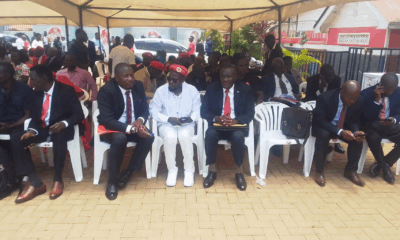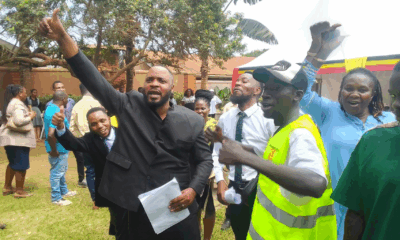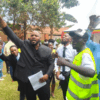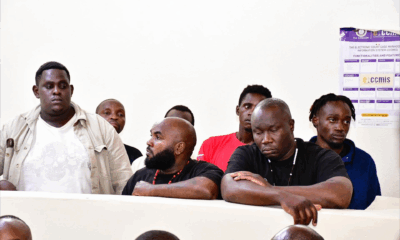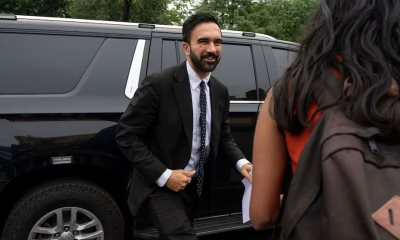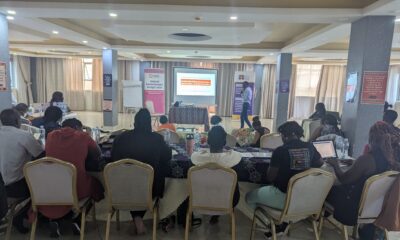News Feature
Human rights linked to environmental conservation
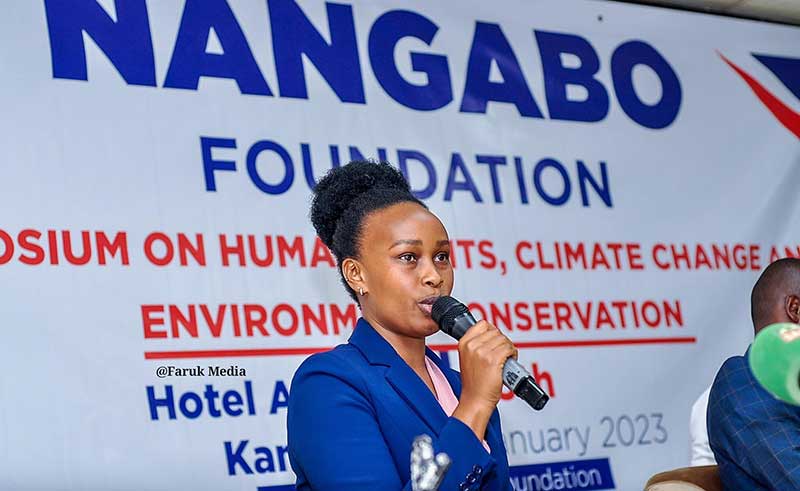
Berbie Itungo Kyagulanyi, the Founder of Caring Hearts Uganda, and also the wife of NUP leader Robert Kyagulanyi, was the chief guest at the Nangabo Symposium on human rights and climate change, which was organised by Kyadondo East MP Muwada Nkunyingi at Hotel Africana in Kampala
Ugandans have been challenged not to wait for their leaders but rather take keen interest in efforts towards addressing Climate change and environment conservation if they are to survive and enjoy other human rights.
Experts have proved that there is a strong link between the enjoyment of Human Rights and environmental conservation. They say that irresponsible human activity has greatly contributed to environmental degradation and the ever rising temperatures.
Speaking at a Symposium on Human Rights, Climate Change and Environment, Dr. George Muganga, the Principal Officer Lead Agency Coordination at the National Environmental Management Authority (NEMA) warned that failure to recognize and observe the right to a clean and health environment by all citizens will eventually lead to human extinction and therefore no other human right will be relevant.
Dr. Muganga implored citizens to always petition the authorities in cases where they are dissatisfied regarding environmental management if they are to enjoy their constitutional right to a clean and healthy environment.
Muwanda Nkunyingi, Kyadondo East Member of parliament also the founder of Nangabo Foundation, the organizers of the symposium expressed his dismay that the National Environment Management Authority is overpowered by the political interests to technically manage some government projects like the East African Crude Oil pipeline which threatens observation of human rights.
However Dr. Muganga insisted that the Authority has issued the Environmental Social and Economic Impact Assessment certificate for the Oil Pipeline Project and there is already an oil spill contingency plan to address any risks.
Despite its efforts to conserve the environment, NEMA is faced with challenges especially when it comes to enforcement. Dr. Muganga says that some of those settling in the wetlands cannot be easily evicted because the come-up with legal documents and this in some instances has resulted in legal suits against the environment management body.
Barbie Itungo Kyagulangi, the director of Caring Hearts Uganda stresses the importance of citizens, especially the young generation, to recognize that they have a right to a clean and healthy environment.
She says that this right must be enjoyed by all people regardless of where they live, where they come from, be it marginalized communities or even those disproportionately distributed communities.
It is important that we are all humans and we deserve this right to clean air and clean water.
“After knowing our rights, it is important to know how we can secure this clean and healthy environment. The environment we live in is protected by us, we are humans, we live on earth and it’s our duty to leave it a better place than we found it for the generations to come,” said Mrs Kyagulanyi.
She adds that Caring Hearts Uganda, an organization that values environmental conservation believes that if we have to leave this earth a better place than we found then it is important to us to contribute towards preserving it.
To her it is evident that we (humans) are the ones spoiling everything for ourselves.
“We are the cause for climate change. We have impacted climate change. We are the reason why our earth is getting spoiled and it’s the reason why we will extinct ourselves,” she added.
The symposium that was organized by Muwanda through Nangabo foundation is to remind us that we must act as soon as we can.
Speaking on the role of leaders in regards to Human Rights, Climate Change and Environment Conservation, Mrs Kyagulanyi urged leaders at all levels to always engage citizens on these issues.
“You should be able to engage, engage citizens, let them participate in decision making such as the development of the climate change policies and change plans,”
She notes that leaders should know that engaging citizens is not supposed to be very complicated, a leader is part of that particular community and they cannot make discussions on climate change without consulting them since these issues affect the majority of the community.
“Am not sure whether most Ugandans understand the main reasons why some people say the East African Crude Oil Pipeline (EACOP) is not ready to go, that we still have a lot to sort out before its construction kicks off. It is important that our leaders let the people that are directly going to be affected by the changes take part in the decision making,” she said.
Comments



